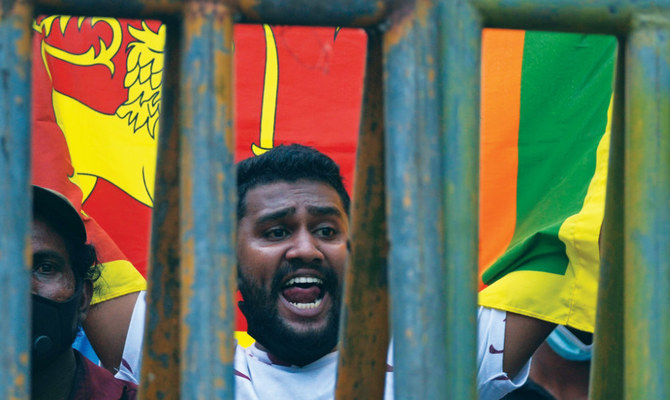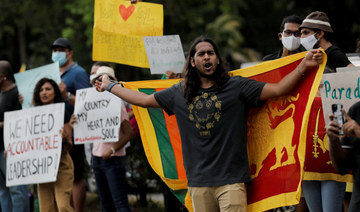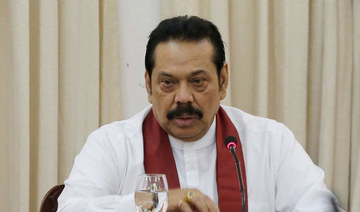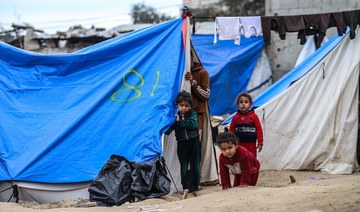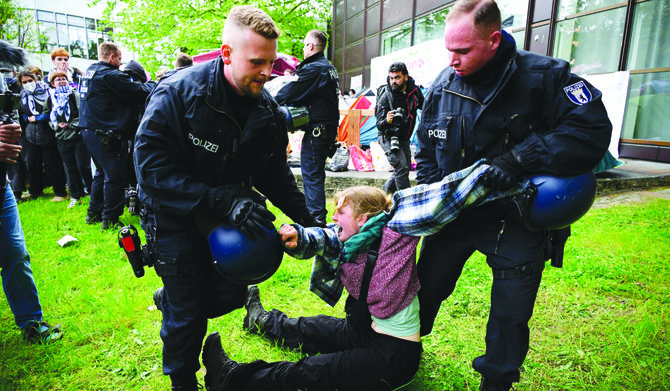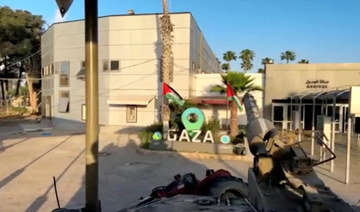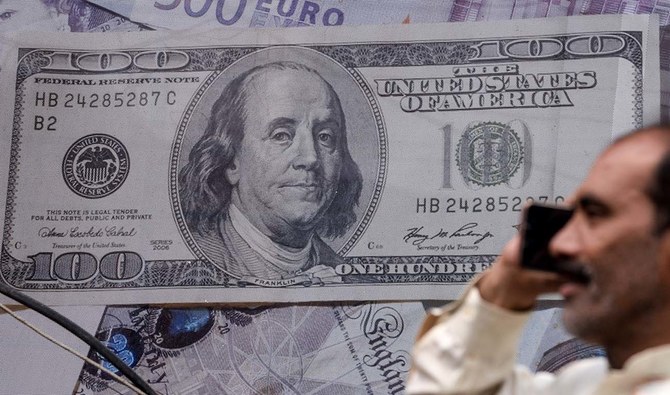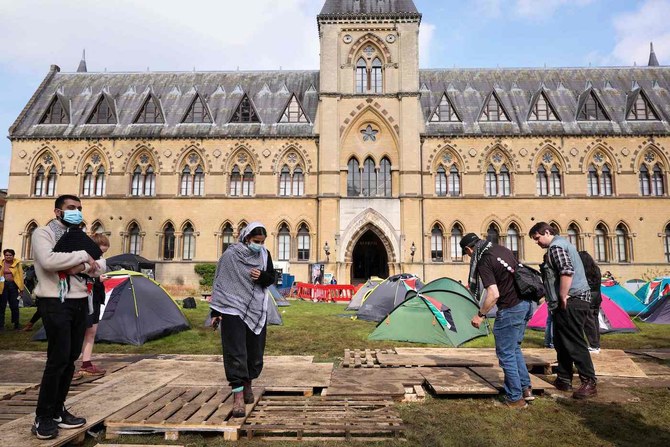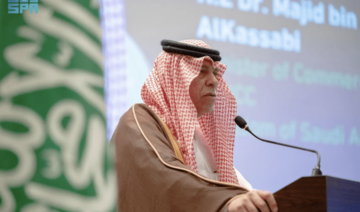COLOMBO: A group of Sri Lankan governing party lawmakers called Tuesday for the appointment of an interim government, warning that a failure to do so would lead to violence and anarchy, as demonstrators continued to demand the resignation of President Gotabaya Rajapaksa over the country’s worst economic crisis in decades.
The lawmakers urged the speaker of Parliament to lead discussions with all parties to select an interim prime minister with the support of a majority of legislators.
The largest opposition party, however, said it will not support any interim government and insisted that the president resign immediately.
“We must heed the voices in the streets. The government should go, starting from the president,” said Sajith Premadasa, leader of the United People’s Force, or SJB.
The SJB has 54 of Parliament’s 225 seats. The governing coalition controlled nearly 150 seats before the current crisis, but is believed to have lost the support of some lawmakers.
Sri Lanka’s Cabinet resigned Sunday night after thousands of people defied a state of emergency and curfew and joined street protests denouncing the government.
The president and his older brother, Prime Minister Mahinda Rajapaksa, continue to hold onto power, despite their politically powerful family being the focus of public ire.
For several months, Sri Lankans have endured long lines to buy fuel, cooking gas, foods and medicine, most of which come from abroad. Shortages of hard currency have also hindered imports of raw materials for manufacturing and worsened inflation, which surged to 18.7 percent in March.
As oil prices soar during the Russia-Ukraine conflict, the island nation’s fuel stocks are running out. Authorities have announced countrywide power cuts extending up to 7 1/2 hours a day because they can’t supply enough fuel to power generating stations.
Parliament met Tuesday for the first time since protests flared earlier this month.
“The first condition to solve this problem is that this government has to leave. In its place there should be an interim government,” said lawmaker Wimal Weerawansa, a former member of Rajapaksa’s Cabinet.
“We as members of the government and opposition have a responsibility to solve this problem. If not, there can be a bloodbath in this country,” said governing party lawmaker Wijayadasa Rajapakshe. “If that happens, you and all of us will be responsible.”
Both Weerawansa and Rajapakshe were elected on the governing party ticket but later opted to be independent of coalition instructions in voting.
During Tuesday’s session, nearly 40 governing coalition lawmakers said they would no longer vote according to coalition instructions, significantly weakening the government.
Lawmakers also asked the speaker on Tuesday to ensure their safety after irate protesters surrounded the homes of several governing party members on Monday shouting slogans and pelting stones.
Police barricaded the area around Parliament, where a few hundred protesters gathered holding placards and chanting “Return our stolen money.”
“We have to get all the thieves out of Parliament,” said Devani Jayatilaka, one of the protesters. “The president has to go and there must be an audit into the assets of all the leaders.”
A group of lawyers staged a rally near Sri Lanka’s main court complex and accused the attorney general of protecting corrupt politicians. Catholic priests and nuns also held a silent protest near the archbishop’s house asking authorities to stop oppression and safeguard the rights of the people.
President Rajapaksa has assumed emergency powers which give him wide authority to protect public order, suppress mutinies, riots or civil disturbances or for the maintenance of essential supplies. Under the decree, the president can authorize detentions, seizure of property and search of premises. He can also change or suspend any law except the constitution.
On Monday, Rajapaksa invited all parties to join a unity government to resolve the crisis, but the SJB immediately rejected the proposal.
The extent of Sri Lanka’s economic crisis became clear when it couldn’t pay for imports of basic supplies because of its huge debts and dwindling foreign reserves. The country’s usable reserves are said to be less than $400 million and it has nearly $7 billion in foreign debt obligations for this year alone.
The pandemic has dealt a heavy blow to an economy that depends heavily on tourism and trade, with the government estimating a loss of $14 billion over the last two years. The economy is estimated to have contracted by 1.5 percent in July-September 2021, according to the central bank.
The already dire economic crisis has deepened as oil prices have surged above $100 a barrel with the war in Ukraine. Vehicles are stranded with empty tanks, power cuts deprive students of study time for exams and shopping mall air conditioners are being switched off to conserve energy. Sri Lanka was already so short of hard currency that authorities ordered bans on imports of cars and fertilizer and appealed to the country’s expatriates to send money home to help restore its depleted foreign reserves.
Rajapaksa last month said his government was in talks with the International Monetary Fund and had turned to China and India for loans.
Two brothers of the president, Finance Minister Basil Rajapaksa and Irrigation Minister Chamal Rajapaksa, were among the Cabinet members who resigned on Sunday, along with the prime minister’s son, Sports Minister Namal Rajapaksa. Those resignations were seen as the family’s effort to pacify public anger while retaining executive, defense and lawmaking powers.



